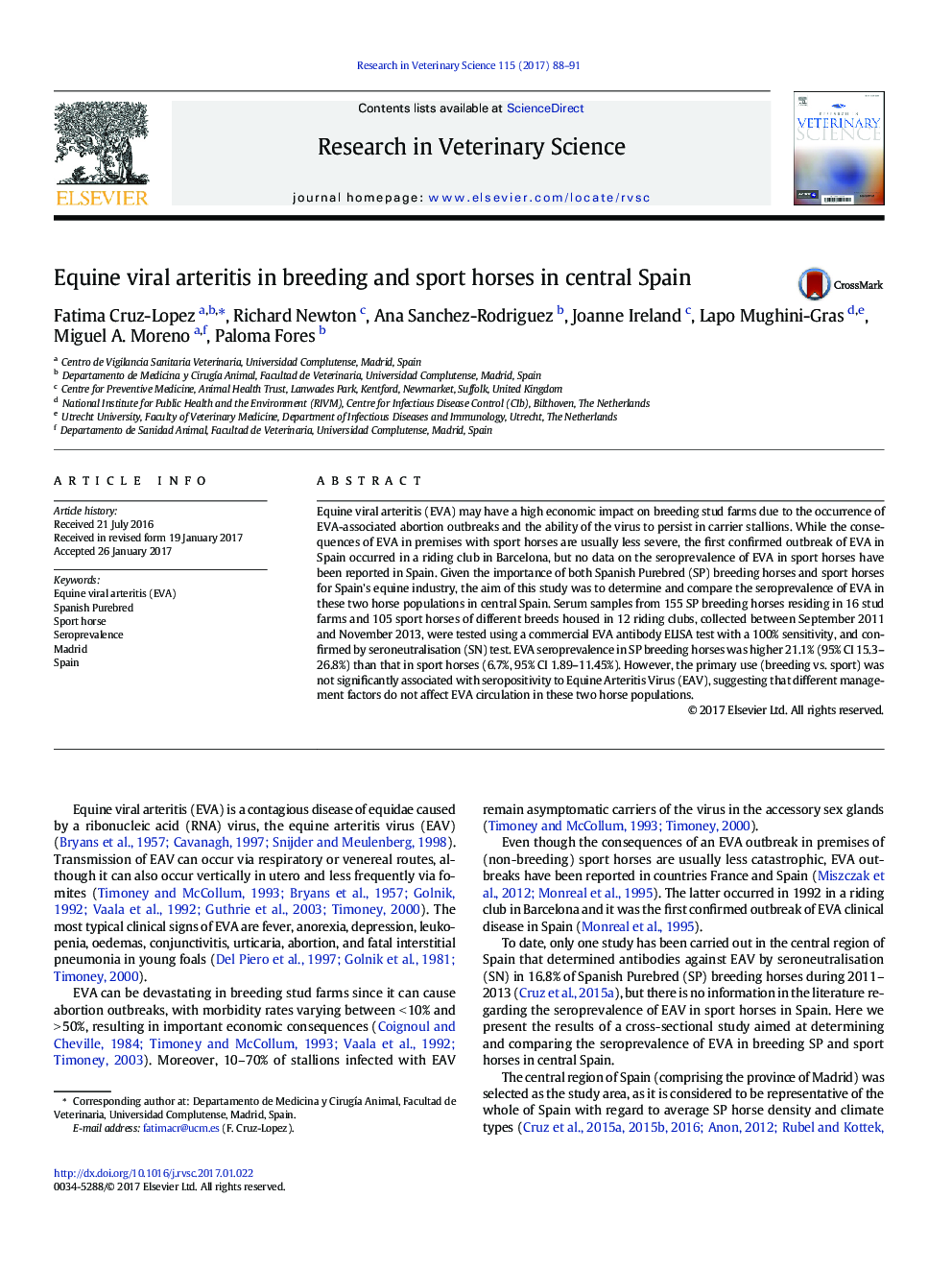| Article ID | Journal | Published Year | Pages | File Type |
|---|---|---|---|---|
| 5543804 | Research in Veterinary Science | 2017 | 4 Pages |
Abstract
Equine viral arteritis (EVA) may have a high economic impact on breeding stud farms due to the occurrence of EVA-associated abortion outbreaks and the ability of the virus to persist in carrier stallions. While the consequences of EVA in premises with sport horses are usually less severe, the first confirmed outbreak of EVA in Spain occurred in a riding club in Barcelona, but no data on the seroprevalence of EVA in sport horses have been reported in Spain. Given the importance of both Spanish Purebred (SP) breeding horses and sport horses for Spain's equine industry, the aim of this study was to determine and compare the seroprevalence of EVA in these two horse populations in central Spain. Serum samples from 155 SP breeding horses residing in 16 stud farms and 105 sport horses of different breeds housed in 12 riding clubs, collected between September 2011 and November 2013, were tested using a commercial EVA antibody ELISA test with a 100% sensitivity, and confirmed by seroneutralisation (SN) test. EVA seroprevalence in SP breeding horses was higher 21.1% (95% CI 15.3-26.8%) than that in sport horses (6.7%, 95% CI 1.89-11.45%). However, the primary use (breeding vs. sport) was not significantly associated with seropositivity to Equine Arteritis Virus (EAV), suggesting that different management factors do not affect EVA circulation in these two horse populations.
Keywords
Related Topics
Life Sciences
Agricultural and Biological Sciences
Animal Science and Zoology
Authors
Fatima Cruz-Lopez, Richard Newton, Ana Sanchez-Rodriguez, Joanne Ireland, Lapo Mughini-Gras, Miguel A. Moreno, Paloma Fores,
